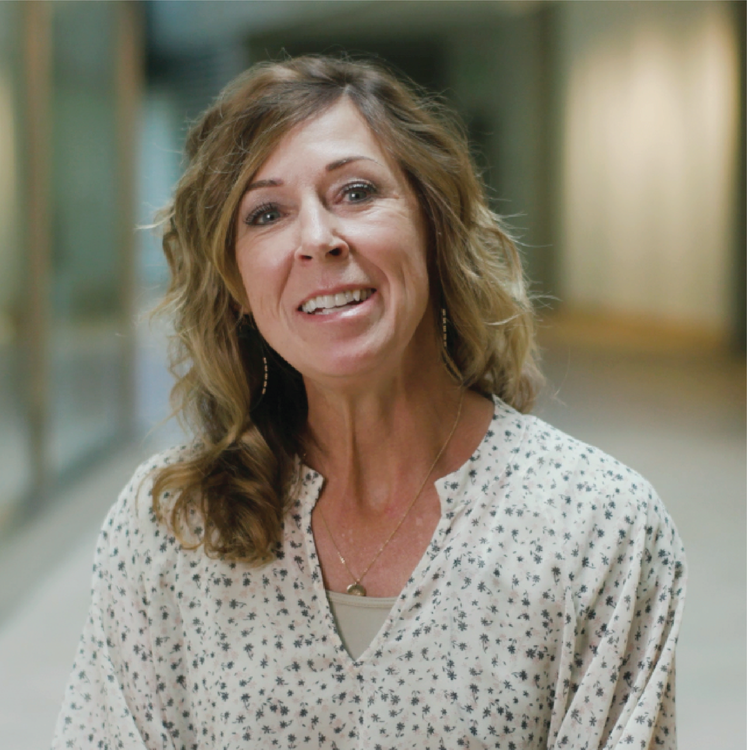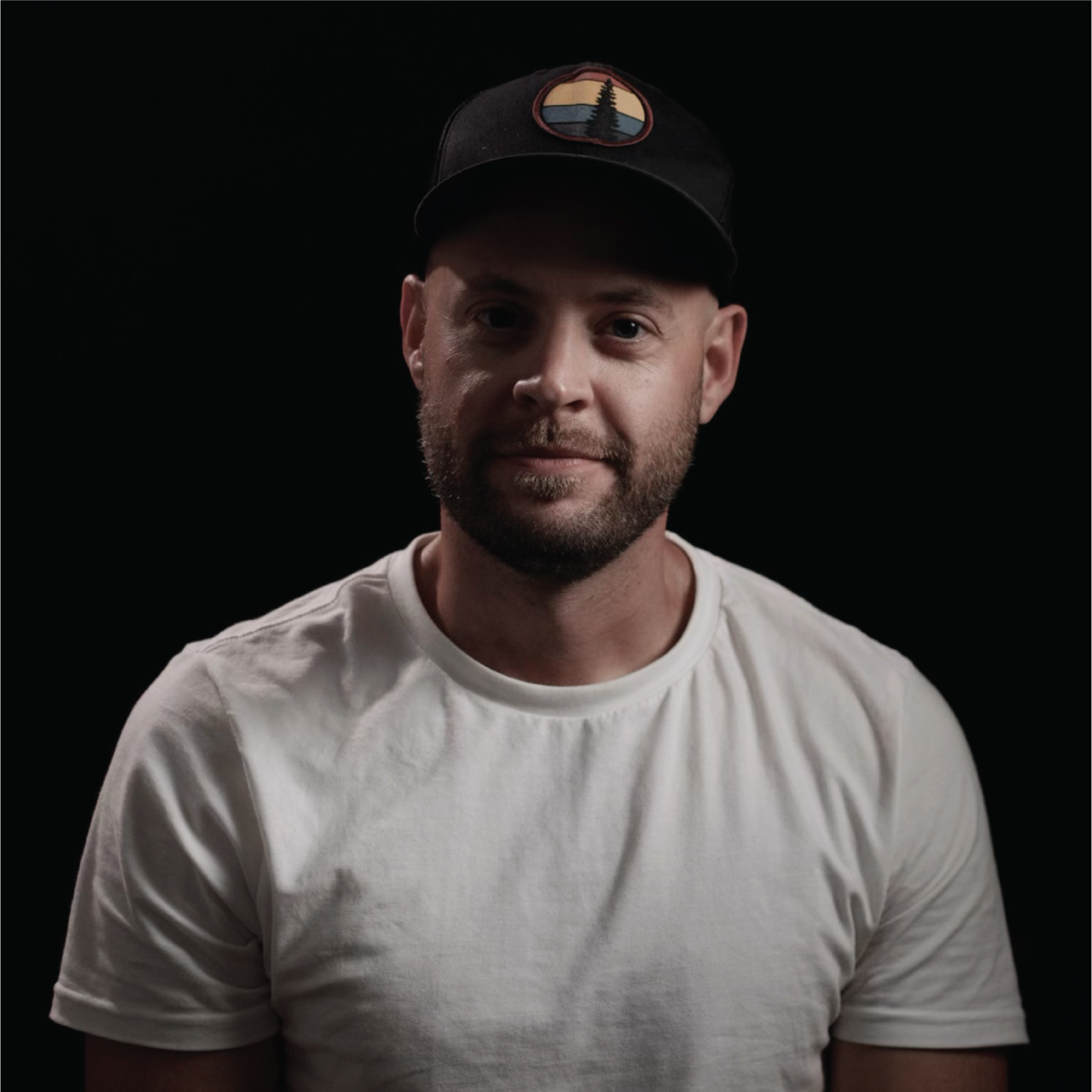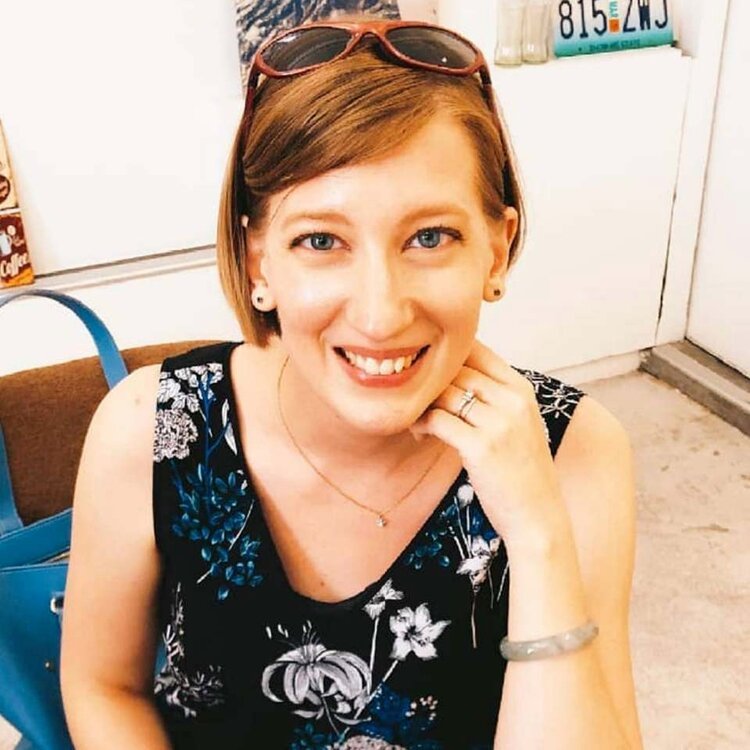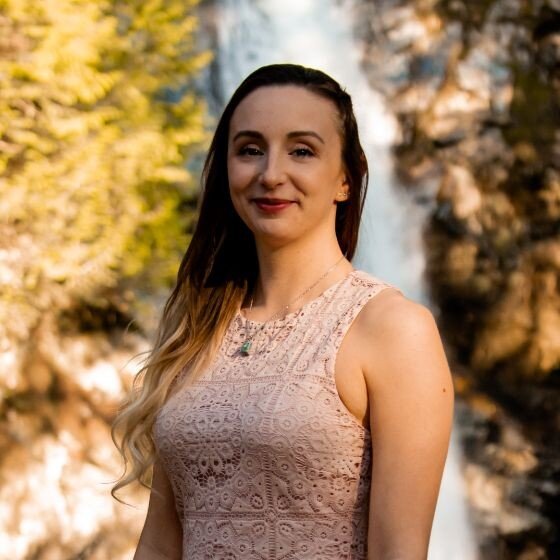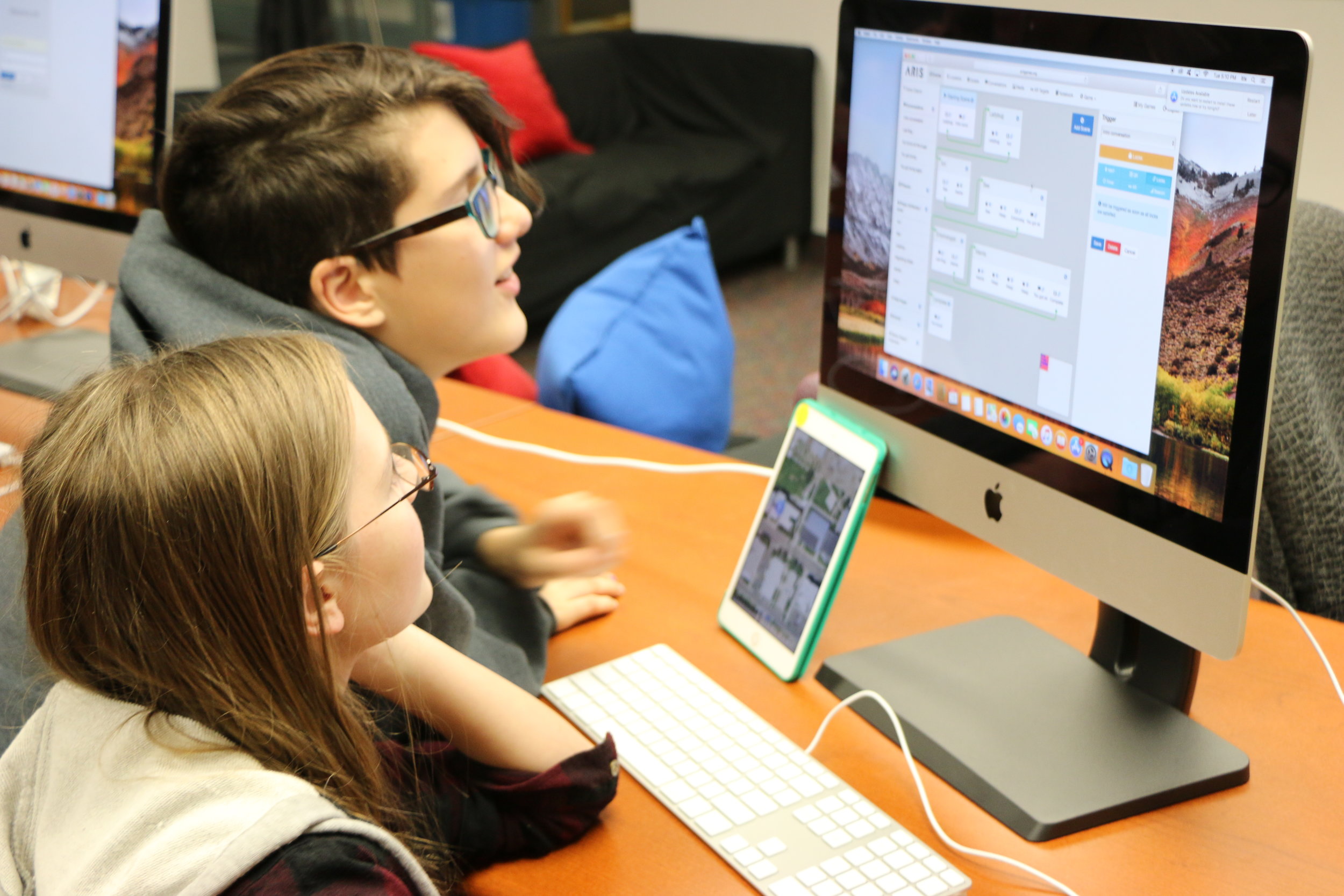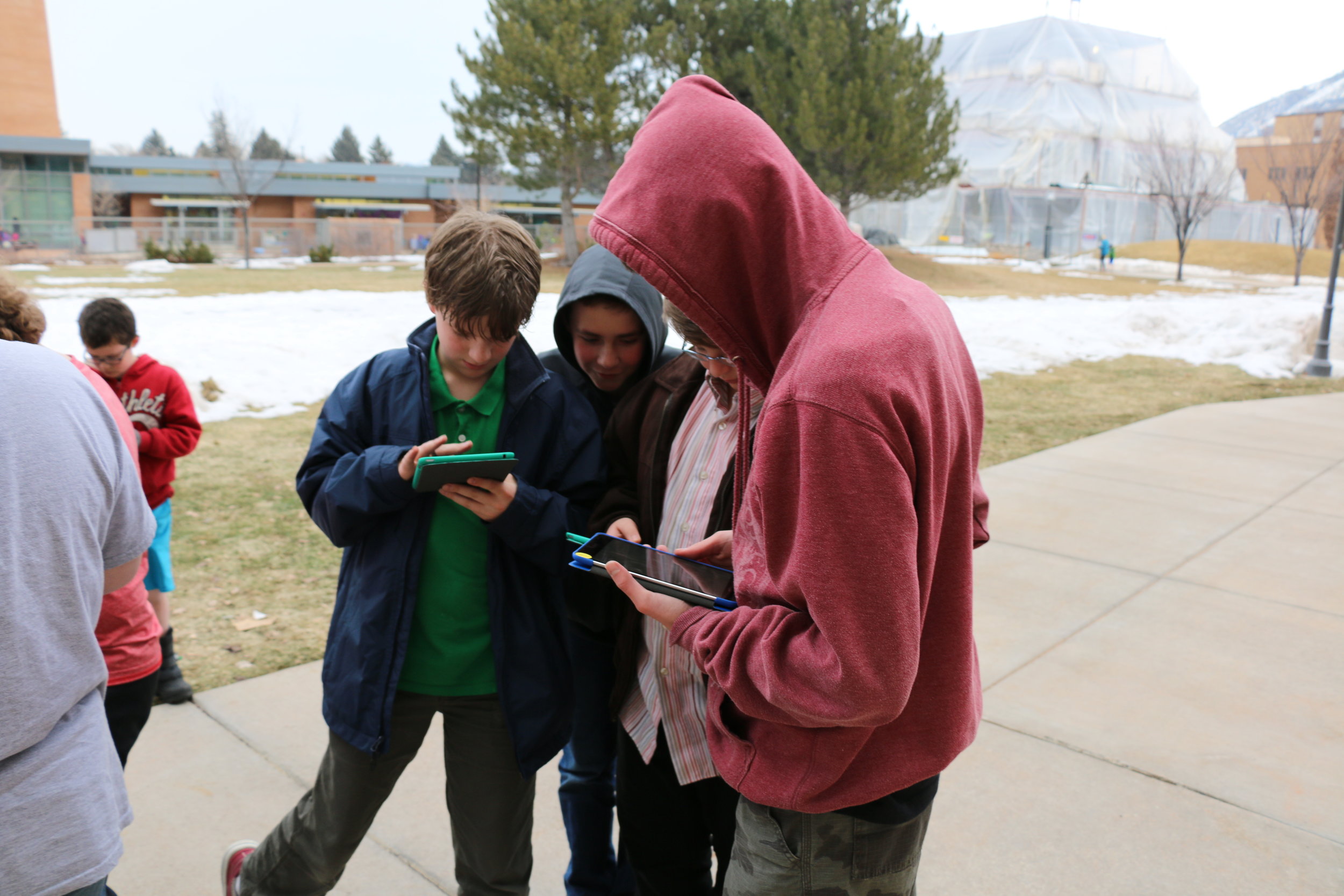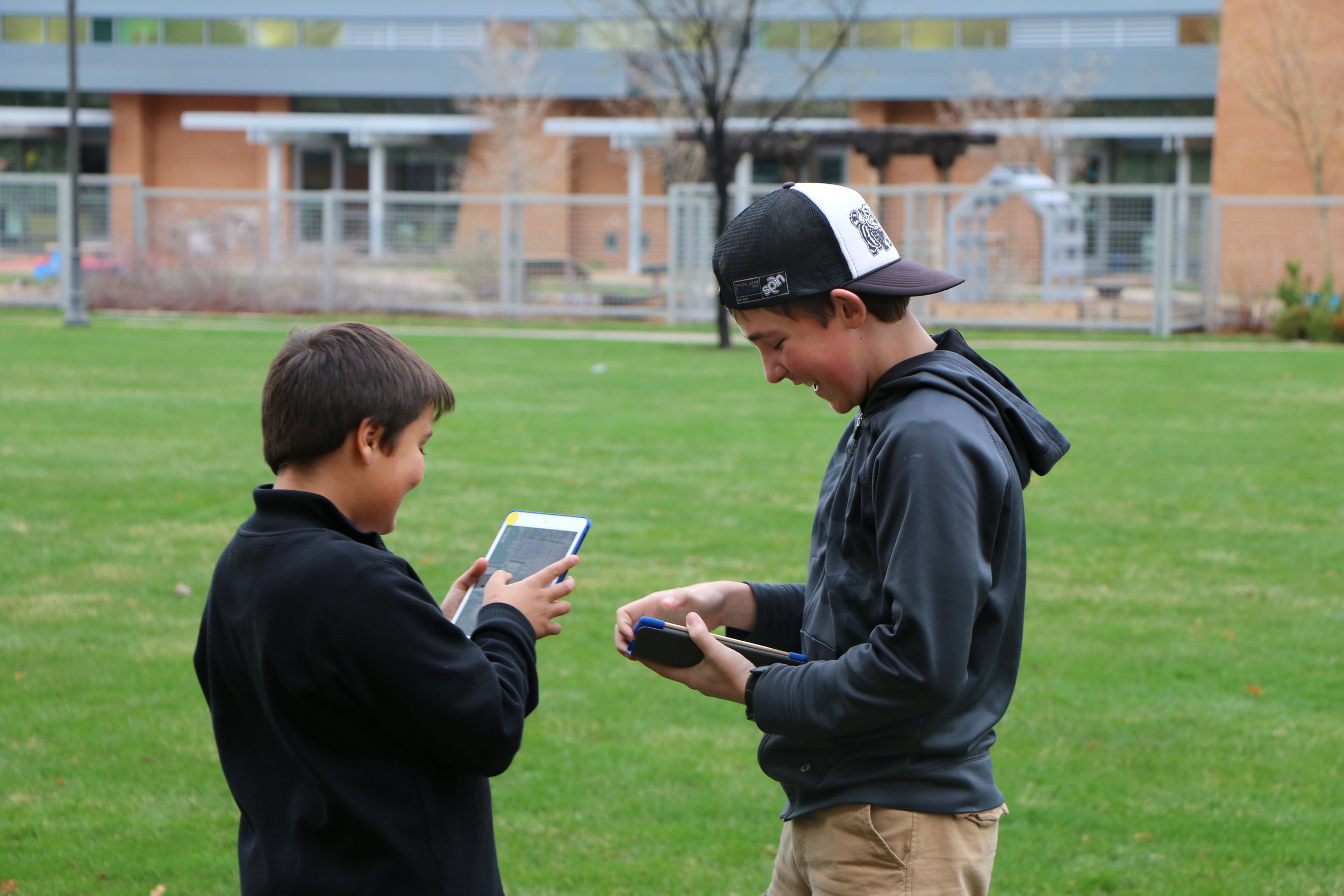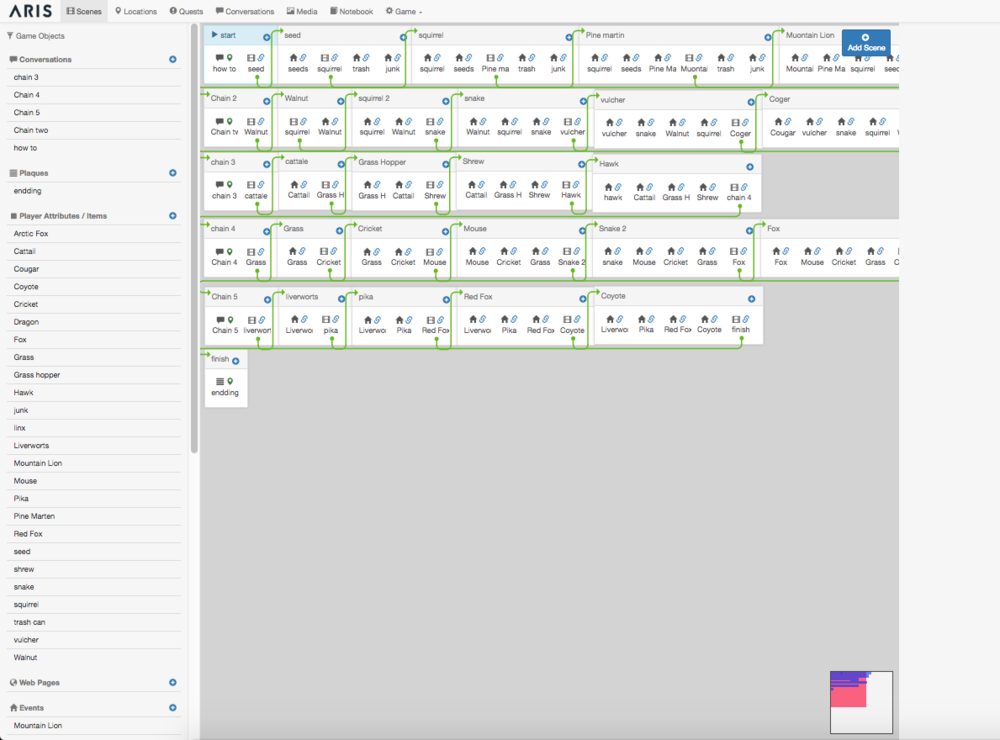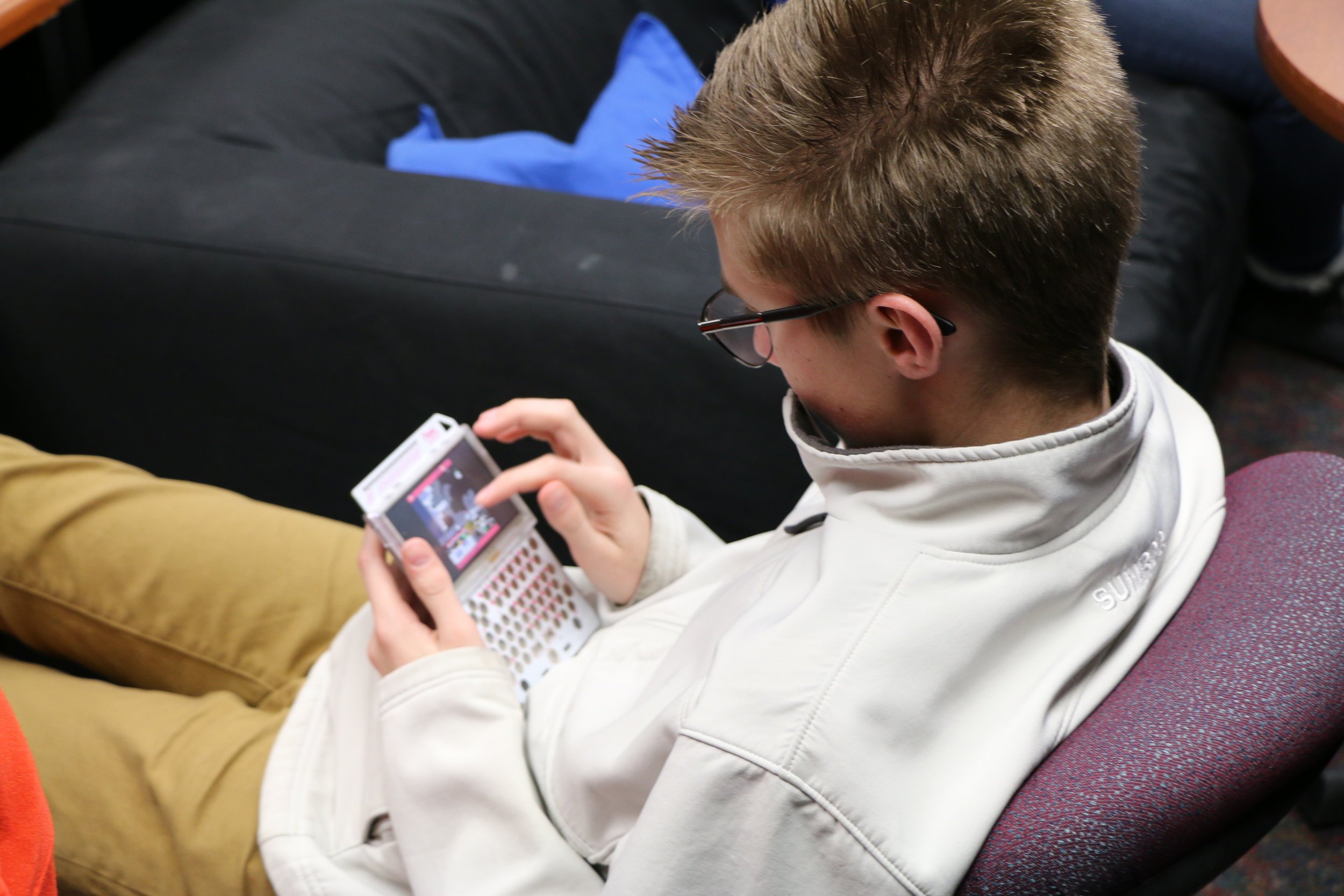Whose History
The Whose History
Disrupting the Colonial Narrative in Fourth Through Sixth Grade Social Studies Education
Whose History is a project working, in part, to better understand how Indigenous perspectives are represented in K-12 classrooms. As an interdisciplinary team of Indigenous and non-Indigenous researchers, educators, designers, and community leaders, we seek to tackle the pressing issues of inequity embedded in social studies education. Specifically, we are examining teachers’, students’, and Tribal members’ perspectives on whether and from whose perspective Indigenous history and existence is taught in 4th-6th grade social studies, where American Indian history is first required in Utah. Learn more on our website.
PROJECT TEAM
FUNDER
CLASP Collaborative
The Community Learning Around Sharing and Partnership (CLASP) collaborative is dedicated to fostering unity through collaboration within local communities.
The Community Learning Around Sharing and Partnership (CLASP) collaborative is dedicated to fostering unity through collaboration within local communities.
PROJECT TEAM
Analysa Allison
Nebo Title VI Program
Charlene Pete
Confederated Tribes of the Goshute Reservation
Clell Pete
Confederated Tribes of the Goshute Reservation
Eileen Quintana
Nebo Title VI Program
James Cawley
Centerstar Creative
Neil Larson
Centerstar Creative
Tifiny Mills
Utah State University
Centering Culture
The Centering Culture team is committed to contributing practical, accessible curricula and toolkits to support teams dedicated to developing their own and their teams’ cultural awareness, knowledge, and skills. Centering Culture tools and resources are designed and developed in partnership with practitioners, community members, and stakeholders in fields and with lived experiences relevant to the respective community and professional context.
The Centering Culture team is committed to contributing practical, accessible curricula and toolkits to support teams dedicated to developing their own and their teams’ cultural awareness, knowledge, and skills. Centering Culture tools and resources are designed and developed in partnership with practitioners, community members, and stakeholders in fields and with lived experiences relevant to the respective community and professional context. For more information, visit centeringculture.org.
PROJECT TEAM
Community Research Trainings
As part of an NSF funded effort, the community research team seeks to develop resources and trainings to support researchers, community partners, and the public in learning how to conduct ethical research that is grounded in values of reciprocity, relationality, and respect. Our resources and trainings are available here.
As part of an NSF funded effort, the community research team seeks to develop resources and trainings to support researchers, community partners, and the public in learning how to conduct ethical research that is grounded in values of reciprocity, relationality, and respect. Our resources and trainings are available here.
PARTNERS
PROJECT LEADS
CURRENT TEAM
GRATITUDE TO PREVIOUS CONTRIBUTERS
Braiding Knowledge
The Braiding Knowledge project is a collaboration between Dr. Melissa Tehee, Dr. Breanne Litts, and Dr. Rogelio Cardona-Rivera that seeks to create new forms of technology that support Indigenous perspectives. Learn more here on our project website.
The Braiding Knowledge project is a collaboration between Dr. Melissa Tehee, Dr. Breanne Litts, and Dr. Rogelio Cardona-Rivera that seeks to create new forms of technology that support Indigenous perspectives. Learn more here on our project website.
PROJECT TEAM
Culture- & Trauma-Informed Training
Our team seeks to develop training and infrastructure that supports development of cultural awareness, knowledge, and skills across a range of healthcare contexts.
Our team seeks to develop training and infrastructure that supports development of cultural awareness, knowledge, and skills across a range of healthcare contexts. This work is guided by the ongoing work in Dr. Melissa Tehee’s Tohi Lab. Our current work is focused on developing culture- and trauma-informed training and resources for practicing healthcare professionals and students. In partnership with the the Intensive Outpatient Clinic (IOC) at the University of Utah, we take a trauma-informed approach to collaboratively designing a holistic and patient-centered cultural competence training. In addition to scaling implementation to potentially include training programs of healthcare professionals, we are co-investigating how the training shifts participants’ interactions with their colleagues, care for their patients, and perspectives of themselves
PARTNERS
PROJECT LEADS
TEAM
Culture, Technology, & Representation with Youth
In this dissertation, Lili Yan leads our team’s investigation of how students develop relationships with culture through culturally center learning activities.
Culture has been historically considered as peripheral to a Western-oriented educational environment. However, learning environments are, in fact, not culturally neutral, which often prescribes expectations of certain knowledge, practices, and ways of being. In this dissertation work, I work alongside a team of Indigenous and non-Indigenous researchers, educators, and designers to design a culturally centered learning environment based on our evolving work throughout our multiyear research practice partnership. As a multiple-paper dissertation, I share learner-level insight on how youths develop relationships with culture in the first paper, in which I (re)conceptualize the way youths learn and engage with culture as Ti-Wu. In the second paper, I examine how technology mediates youths’ relationship with culture with a case study approach. I document the design process throughout my dissertation study in a narrative reflection. My dissertation work took place during the COVID-19 pandemic and contributes to the conversation on how to center culture in a formal learning environment when our society is facing multiple challenges to engage learners with culture in the classroom.
Dissertation Committee: Breanne Litts (Chair), Melissa Tehee, Jody Clarke-Midura, Hillary Swanson, Marisela Martinez-Cola
PARTNERS
PROJECT LEAD
TEAM
FUNDERS
Daigwade
The Daigwade project is a community-based effort with the Northwestern Band of the Shoshone Nation. We are working with families to create place-based storytelling experiences that share and preserve the Tribe’s culture.
The Daigwade project (NSF Grant #1943630) is a community-based project with the Northwestern Band of the Shoshone Nation. The Daigwade project seeks to engage families in the Northwestern Band of the Shoshone Nation with the overarching goal to preserve and share culture with digital and non-digital technologies. We are developing family and community programming to teach culture, technology, science, and art. Please check out the project website for more information about this project: daigwade.org.
PARTNERS
PROJECT LEAD
TEAM
Cultivating Connections
In partnership with Dr. Melissa Tehee (Psychology, USU) and her Tohi Lab, Dr. Litts and the LED Lab are working with Edith Bowen Laboratory School (K-6) to investigate how to collaboratively (re)design cross-cultural field experiences for sixth graders to effectively develop culturally competent citizen scholars. The key aim of the project is to cultivate connections across partners, cultures, and disciplines.
In partnership with Dr. Melissa Tehee (Psychology, USU) and her Tohi Lab, Dr. Litts and the LED Lab are working with Edith Bowen Laboratory School (K-6) to investigate how to collaboratively (re)design cross-cultural field experiences for sixth graders to effectively develop culturally competent citizen scholars. The key aim of the project is to cultivate connections across partners, cultures, and disciplines. This work is funded by USU’s Seed Program to Advance Research Collaborations and the Spencer Foundation.
PARTNERS
PROJECT LEADS
TEAM
FUNDERS
TEACH Training
The LED Lab and the Tohi Lab partnered to rebrand and redesign the TEACH cultural competence training to make it accessible to the USU community and more broadly to the public.
With funds from a Howard Hughes Medical Institute Inclusive Excellence award, Dr. Melissa Tehee and the Tohi Lab developed the TEACH cultural competence training. The LED Lab and the Tohi Lab partnered to rebrand and redesign the TEACH cultural competence training to make it accessible to the USU community and more broadly to the public. These combined efforts were funded, in part, by Utah State University President’s Office, the Emma Eccles Jones College of Education and Human Services, and the Instructional Technology & Sciences Department. The training is available here.
PROJECT LEADS
TEAM
FUNDING PARTNERS
Teaching Online During COVID-19
This research project investigates the interaction of teachers and staff at a local elementary school as they navigate the shift to teaching remotely during a pandemic. We are specifically seeking to understand how this school's staff apply their collaborative culture to address the unprecedented challenges of teaching online.
This research project investigates the interaction of teachers and staff at a local elementary school as they navigate the shift to teaching remotely during a pandemic. We are specifically seeking to understand how this school's staff apply their collaborative culture to address the unprecedented challenges of teaching online.
PROJECT LEAD
TEAM
PUBLICATIONS
Reality Media and the Anthropocene
The “Reality Media and the Anthropocene” project explores the design of emerging reality media, such as AR and VR in how they create new ways to develop an understanding of the Anthropocene, the new geological epoch in which human activities are the dominant force of change. The goals of the project are to understand how reality media help with the learning and reflection of the newly proposed concept (the way to understand human existence) and identify critical design features from existent cases.
The “Reality Media and the Anthropocene” project explores the design of emerging reality media, such as AR and VR in how they create new ways to develop an understanding of the Anthropocene, the new geological epoch in which human activities are the dominant force of change. The goals of the project are to understand how reality media help with the learning and reflection of the newly proposed concept (the way to understand human existence) and identify critical design features from existent cases.
Photo Credit: Illustration by Jessica Fortner. Source: https://www.nature.com/news/anthropocene-the-human-age-1.17085
PROJECT LEAD
PROJECT TEAM
We Got the Beat
We Got the Beat (WGB) is a project founded by Cedric Mannie and Kameica Yazzie in collaboration with Dr. Breanne Litts. WGB aims to impact young people’s perception of health through the use of computers with the aim of informing literature about health, health sciences, computer programming, and especially learning sciences.
We Got the Beat (WGB) is a project founded by Cedric Mannie and Kameica Yazzie in collaboration with Dr. Breanne Litts. WGB aims to impact young people’s perception of health through the use of computers with the aim of informing literature about health, health sciences, computer programming, and especially learning sciences.
PROJECT LEADS
TEAM
FUNDING
This project is funded, in part, by USU’s Emma Eccles Jones College of Education and Human Services and anonymous donors.
Storycoding
We explore how to support teaching and learning of computational thinking (CT) practices in interdisciplinary, age-appropriate contexts. To prepare youth to be computationally literate in a digital world economy, two key approaches have emerged aiming to make text-based programming more widely applicable, accessible, and age-appropriate.
Storycoding: Computing Through Place and Story
We explore how to support teaching and learning of computational thinking (CT) practices in interdisciplinary, age-appropriate contexts. To prepare youth to be computationally literate in a digital world economy, approaches have emerged aiming to make text-based programming more widely applicable, accessible, and age-appropriate. Growing evidence, however, shows that a third approach of leveraging storytelling can make programming more accessible as well as increase interest in computation, especially for girls and younger children (Kelleher, Pausch, & Kiesler, 2007; Ryokai, Lee, & Breitbart, 2009). We adopt this storytelling approach in this project. Specifically, we examine how young people design place-based stories. Through the design process, students conduct rigorous inquiry on a topic often using or generating primary data and sources. They then engage in an iterative design process to build a computational artifact with augmented-reality (AR) technologies. Computing with place and story is an inherently integrative activity that brings together STEM and computer sciences practices in a range of other disciplinary contexts like social sciences and humanities, which draw on narrative as part of their core practice.
PARTNERS
PROJECT LEAD
Breanne Litts
PROJECT TEAM
Safe Passages for U
Safe Passages 4 U is a student-led initiative to improve the campus climate at Utah State University. The Safe Passages team believes that all students have the right to obtain the best education possible on this campus and to feel safe and supported while doing so.
This is a student-led initiative to improve the campus climate at Utah State University. The Safe Passages team believes that all students have the right to obtain the best education possible on this campus and to feel safe and supported while doing so. Acts of discrimination and harassment interfere with opportunities to exercise that right. It is not enough to tell underrepresented students where they can go if discrimination and harassment occur. Members of our community should be proactively preventing or interrupting acts of discrimination and harassment. The purpose of this project is to increase awareness, knowledge, and skills surrounding diversity issues at USU using a novel and flexible approach that incorporates in-person training and a mobile application. The project supports two overarching goals related to diversity: 1) teach individuals to approach situations involving diversity and marginalized groups by developing awareness, knowledge, and skills; 2) create a mobile app to connect trained individuals, “buddies,” with students, “users,” who seek immediate support. As partners on this project, the LED Lab supported the mobile app portion of this grant work.
PI: Kaylee Litson (PhD student, Psychology)
Funding source: USU Diversity Council Long-Term Grant Submission, NSF
The Graduation Game
The Graduation Game (TGG) is an academic exploration game designed in ARIS. This game has been utilized for two years as an orientation tool for psychology undergraduate students. This game allows students to explore the courses they will take during the first year of their bachelor’s degree situated on the Utah State University Campus.
The Graduation Game (TGG) is an academic exploration game designed in ARIS. This game has been utilized for two years as an orientation tool for psychology undergraduate students. This game allows students to explore the courses they will take during the first year of their bachelor’s degree situated on the Utah State University Campus. TGG will be published in the Handbook of Mobile Teaching and Learning.
PROJECT LEAD
PROJECT TEAM
Culturally Responsive Making
Culturally Responsive Making: Developing High-Low Tech Maker Activities in Local and Mobile Spaces for Supporting American Indian Youth is a two-year, National Science Foundation (#1623404) funded project in collaboration with Arizona State University and the University of Pennsylvania. The goal of this project is to develop culturally responsive making activities and makerspaces with two Indigenous communities, one in Utah and one in Arizona.
Culturally Responsive Making: Developing High-Low Tech Maker Activities in Local and Mobile Spaces for Supporting American Indian Youth is a National Science Foundation (#1623404) funded project in collaboration with Arizona State University and the University of Pennsylvania. The goal of this project is to develop culturally responsive making activities and makerspaces with two Indigenous communities, one in Utah and one in Arizona. We are interested in how these spaces and activities impact youth, teacher, and community conceptions of and interest in STEM learning. For more information about this project, please visit the project website.
This video presents a paper from ICLS 2020, which covers a component of the overall grant work.
PROJECT CO-LEAD
TEAM
FUNDING
Learning Analytics in ARIS
In partnership with the Field Day Lab (David Gagnon) and Videogame Research (Dr. Dennis Ramirez), this project brings together computer, data, and learning designers and scientists to explore how the log data in a mobile development platform can shed light on youths’ learning in making and coding their games. Specifically, we examined ARIS (Augmented Reality and Interactive Storytelling), a narrative-based programming platform for non-programmers made up for a web-based editor and a client-based app.
Learning Analytics in ARIS: Making Sense of Learning in a Game Design Platform
In partnership with the Field Day Lab (David Gagnon) and Videogame Research (Dr. Dennis Ramirez), this project brings together computer, data, and learning designers and scientists to explore how the log data in a mobile development platform can shed light on youths’ learning in making and coding their games. Specifically, we examined ARIS (Augmented Reality and Interactive Storytelling), a narrative-based programming platform for non-programmers made up for a web-based editor and a client-based app. While some scholars have investigated what learning happens in-the-world or on the client side of youth’s engagement with ARIS, no efforts have been made to examine the log data from the editor. Our initial goal was to explore the editor log data to build an understanding of what it tells us about learning.
TEAM
Computing with PocketCHIP
We explore how to support teaching and learning of computational thinking (CT) practices in interdisciplinary, age-appropriate contexts. To prepare youth to be computationally literate in a digital world economy, two key approaches have emerged aiming to make text-based programming more widely applicable, accessible, and age-appropriate.
Youth using PocketCHIP
Computer Science (CS) is a rapidly expanding field with many new and exciting opportunities. Computational Thinking (CT), a skill set and attitude that “involves solving problems, designing systems, and understanding human behavior, by drawing on the concepts fundamental to computer science,” is essential for success in this discipline (Wing, 2006). In this project, we compared young people's design processes when using a visual mobile programming tool and a text-based mobile programming tool. We are investigating the following questions: Do participants improve their CT skills while programming and remixing on mobile devices and which of these skills are most frequently exhibited? What does remixing a game look like in a visual-based mobile programming tool versus a text-based mobile programming tool? How does this affect their view towards a career in computer science and their awareness and interest in technology?
PROJECT LEAD
TEAM
PROJECT FUNDING
This project was funded by USU’s Office of Research Undergraduate Research and Creative Projects grant to Chase Mortensen.
